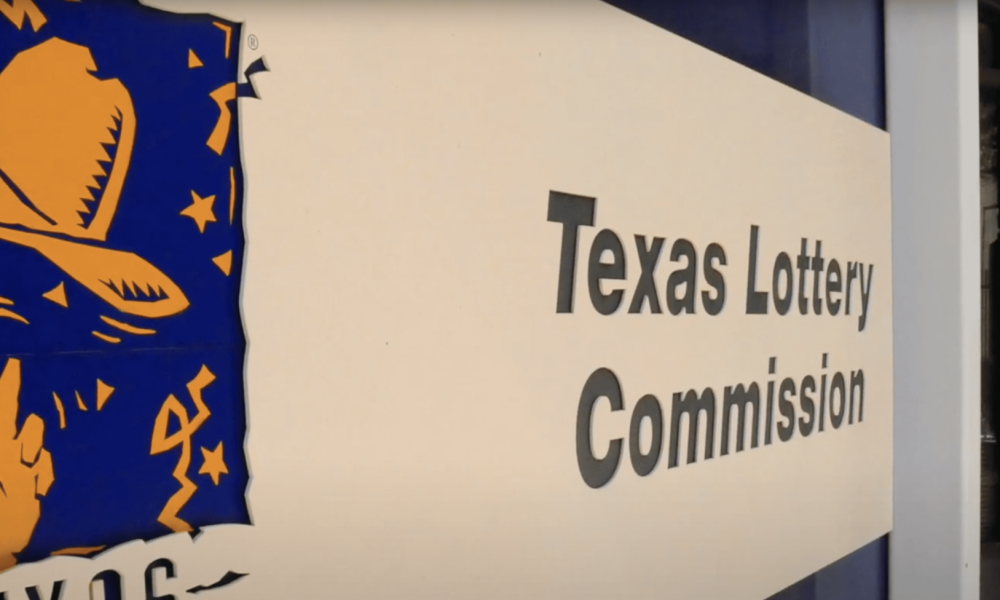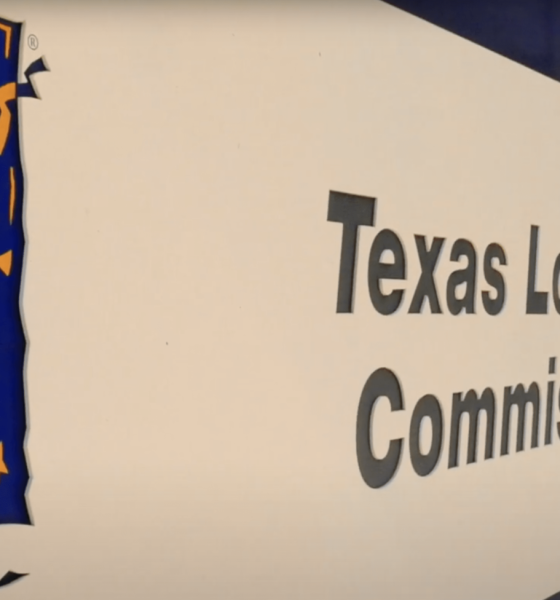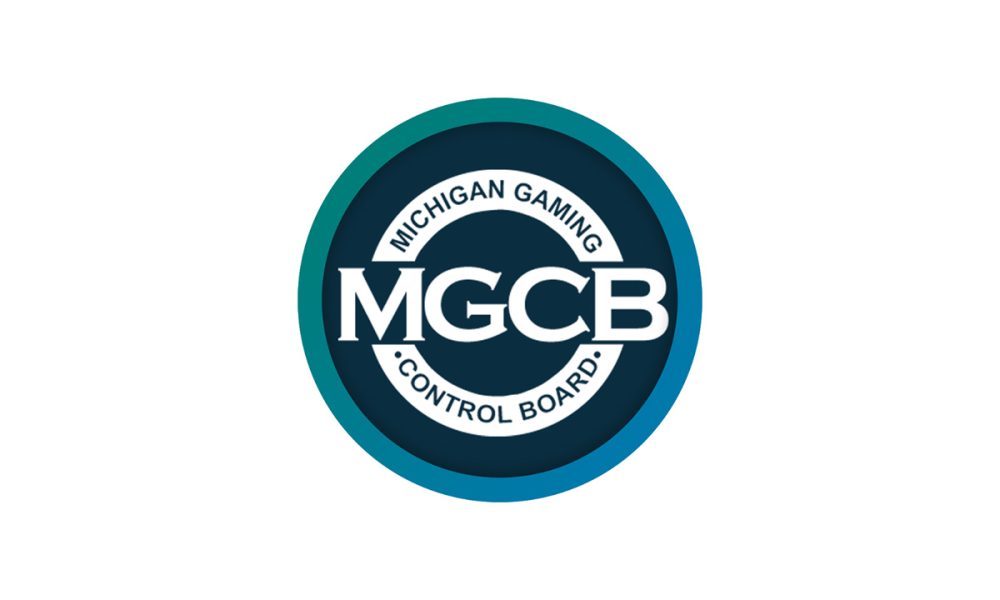

Compliance Updates
Texas House Passes Bill to Abolish Texas Lottery Commission
The Texas House has approved legislation to abolish the Texas Lottery Commission and reform lottery operations after multiple scandals have rocked the agency.
Authored by State Sen. Bob Hall (R-Edgewood), Senate Bill 3070 abolishes the commission that has overseen the lottery since shortly after its founding in 1991, moving operations to the Texas Department of Licensing and Regulation.
As originally written, the bill would also limit ticket sales per transaction, require age verification at the point of sale, push the agency into a two year probationary period and provide for greater oversight of the lottery—oversight that has been either intentionally or unintentionally lacking.
In January, Lt. Gov. Dan Patrick made an impromptu visit to a lottery ticket reseller responsible for selling millions of tickets online. During the course of his visit, he was denied access to the area where ticket printing was taking place.
The bill, as originally written, would allow the lieutenant governor, Speaker of the House, attorney general, and governor the ability to act as inspectors of lottery operations.
At the eleventh hour, State Rep. Charlie Geren (R-Fort Worth) offered a 58-page amendment to the measure that removed this and other critical parts of the bill. It was this amended bill that was, according to Geren, drafted with the lottery vendors, colloquially called stakeholders, that ultimately passed the House.
Among other changes, the Geren amendment changed vendor and employee retention.
While it was argued that the current employees would provide for a smoother transition from the TLC to TDLR, this would include members of the staff who were complicit in the extra legislative expansion of gambling in the state of Texas, and covering for the lottery’s multiple sins.
The Geren amendment, passed under the watchful eye of IGT’s lobbyist and former chief of staff to Gov. Greg Abbott, Luis Sanez, also guarantees that the state lottery contract will remain with its current vendor, IGT. According to a lawsuit filed in Houston, the company played a critical role in an international gambling syndicate’s rigging of the April 2023 $95 million jackpot.
According to testimony given to the Texas Senate State Affairs Committee, representatives from IGT were onsite for hours during the ticket printing at a location that conducted no retail business, which is against state rules. This is the same location where children were filmed printing tickets.
Geren, a longtime proponent of expanding gambling in Texas, failed to pass a bill last session that would have allowed casino gambling in the state. This session, the lottery, and its corrupt operation took all the oxygen out of the room.
State Rep. Brent Money (R-Greenville) offered an amendment to Geren’s amendment that would have abolished the lottery and not just the commission. Money’s amendment failed by a vote of 71-58.
Geren’s amendment was ultimately adopted in a vote of 91-44.
The legislation passed in a vote of 110-29.
Now, the bill requires one more vote in the House before going back to the Senate for either approval or to be reconciled in a conference committee.
If the bill is not reconciled, the lottery may be abolished, or a special session could be forced to save the corruption-plagued institution.
The post Texas House Passes Bill to Abolish Texas Lottery Commission appeared first on Gaming and Gambling Industry in the Americas.
Betty Wins
MGCB Orders Four Offshore Online Casinos to Cease Operations in Michigan

The Michigan Gaming Control Board (MGCB) has issued cease-and-desist letters to four unlicensed online casinos—Betty Wins, Orbit Spins, Pacific Spins Casino, and Yabby Casino—all operated by Tech Zone Inc., a company registered offshore in the Union of Comoros.
The enforcement action is part of the MGCB’s ongoing commitment to protect Michigan residents from illegal gambling platforms that lack oversight, player safeguards, and responsible gaming protections.
“These offshore operators lure players with flashy ads and promises of big winnings, but in reality, they put consumers at serious financial and personal risk. We will continue to take strong action against unlicensed sites to ensure gambling in Michigan is legal, fair, and secure,” said Henry Williams, Executive Director of MGCB.
Under Michigan law, only MGCB-licensed operators are authorized to offer internet gaming and sports betting. Tech Zone’s four brands were found to be illegally targeting Michigan residents, violating the Lawful Internet Gaming Act, the Michigan Gaming Control and Revenue Act, and sections of the Michigan Penal Code.
“Illegal operators may use familiar branding or social media ads to appear trustworthy. But if the site isn’t licensed by the MGCB, it isn’t safe. We encourage all players to check before they bet,” Williams said.
The post MGCB Orders Four Offshore Online Casinos to Cease Operations in Michigan appeared first on Gaming and Gambling Industry in the Americas.
Compliance Updates
CT Interactive grows its certified portfolio in Romania

CT Interactive is strengthening its presence in Romania’s regulated iGaming market by certifying 20 new games, bringing its total portfolio in the country to 101 titles. This is a significant achievement in the company’s European growth strategy.
Among the new certified releases are fan favorites such as Lucky Clover 10, the latest addition to the beloved Clover series featuring vintage-inspired graphics and nostalgic design elements, and 20 Mega Star, a classic fruit-themed slot that combines familiar gameplay with modern visuals to keep players engaged. Both titles have already proven their success across multiple international markets with strong player engagement.
Additionally, CT Interactive is launching its new Buy Bonus product line in the Romanian market. This exciting lineup includes Doctor Winstein Buy Bonus, Duck of Luck Buy Bonus, Fruits & Sweets Buy Bonus, Nanook the White Ghost Buy Bonus, and Hyper Cuber Buy Bonus — all offering thrilling bonus features and enhanced gameplay tailored to local player preferences.
“Certification in Romania is an important part of our European growth strategy,” said Martin Ivanov, COO of CT Interactive. “This expansion not only strengthens our presence but also enables us to offer a diverse and premium range of content to the regulated Romanian market.”
With these new certifications, CT Interactive continues to be a trusted provider of engaging gaming content, offering Romanian operators a broad range of advanced titles fully aligned with local regulatory standards.
The post CT Interactive grows its certified portfolio in Romania appeared first on European Gaming Industry News.
American Gaming Association
MDC Issues Commentary as U.S. Gambling Enters “Regulatory Reset” Following $148 Billion Wagered

Minimum Deposit Casinos (MDC) has issued an expert commentary on what it calls a “regulatory reset” in the U.S. gambling sector, as lawmakers and regulators respond to explosive growth in consumer betting behavior. According to the American Gaming Association, Americans wagered a record $148 billion on sports in 2024. This surge has sparked new scrutiny from both federal and state-level authorities.
Recent legislative efforts in New York, Louisiana, and Montana have targeted sweepstakes-based casinos and skill-based betting formats. Proposed changes include tighter bet size limits, stricter advertising rules, and licensing reforms aimed at reducing player harm and increasing transparency.
“The regulatory environment is catching up with consumer behavior. There’s growing concern over how online gambling is marketed, accessed, and governed. Areas like responsible gaming, ad targeting, and instant deposits are now being looked at much more critically,” said a spokesperson at MDC.
According to the latest figures from the American Gaming Association, U.S. commercial gaming revenue reached $19.44 billion in Q2 2025, marking a 9.8% increase compared to the same period last year. Online casino gaming accounted for $2.6 billion of that total, reflecting a 32.3% year-over-year jump. The numbers underscore continued momentum for digital platforms even as regulations tighten.
MDC’s commentary urges both players and operators to stay ahead of the curve. As laws evolve, demand is rising for licensed platforms that offer low-deposit access, better responsible gambling tools, and full regulatory compliance.
The post MDC Issues Commentary as U.S. Gambling Enters “Regulatory Reset” Following $148 Billion Wagered appeared first on Gaming and Gambling Industry in the Americas.
-

 gaming3 years ago
gaming3 years agoODIN by 4Players: Immersive, state-of-the-art in-game audio launches into the next generation of gaming
-
EEG iGaming Directory8 years ago
iSoftBet continues to grow with new release Forest Mania
-
News7 years ago
Softbroke collaborates with Asia Live Tech for the expansion of the service line in the igaming market
-
News7 years ago
Super Bowl LIII: NFL Fans Can Bet on the #1 Sportsbook Review Site Betting-Super-Bowl.com, Providing Free Unbiased and Trusted News, Picks and Predictions
-
iGaming Industry8 years ago
Rick Meitzler appointed to the Indian Gaming Magazine Advisory Board for 2018
-
News7 years ago
REVEALED: Top eSports players set to earn $3.2 million in 2019
-
iGaming Industry8 years ago
French Senator raises Loot Boxes to France’s Gambling Regulator
-
News7 years ago
Exclusive Interview with Miklos Handa (Founder of the email marketing solutions, “MailMike.net”), speaker at Vienna International Gaming Expo 2018











